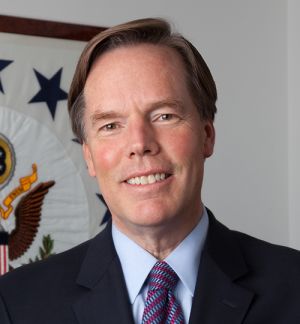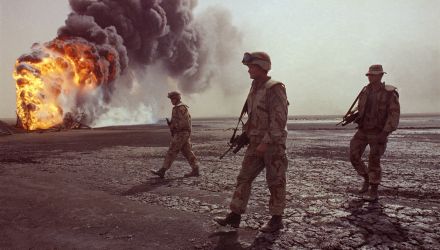When Richard Nixon went to China four decades ago, he changed the world. His opening to Mao’s communist regime created an unlikely US alliance with Beijing against Moscow that lasted until the end of the Soviet monolith itself in 1991.
Forty years later, is the balance among the three great powers changing once more? And, this time, are the Chinese and Russians teaming up to hem in the United States?
Why else would China’s new president, Xi Jinping, choose Russia as the first country he visits and Russia’s autocratic, America-bashing leader, Vladimir Putin, as his new best friend? Symbolism is important in global politics. The message that China is now looking to Russia to help constrain America was not lost on Washington.
China and Russia both view the United States as unbridled and domineering. For most of the last decade, both powers have worked to frustrate America’s efforts as the “systems operator” of the international order, in Princeton scholar John Ikenberry’s phrase.
Thirty years ago, when Deng Xiaoping and Mikhail Gorbachev guided relatively weak states, neither was in a position to complain too loudly about Washington’s primacy. But, with the extraordinary growth of China’s economic power and the restoration of stability and pride in Russia, both countries now chafe at merely sitting on the board of directors as America plays both chairman and CEO of the world.
On some of the most important humanitarian crises of our time — Darfur, Kosovo, Burma, and Syria — they have cynically used their power to delay or block international solutions. They rarely offer ideas of their own to address the most difficult global problems. Russia is also worried that America’s looming energy power may cut into its near monopoly on natural gas exports to Europe. China is concerned Obama’s pivot to Asia will prevent its rightful emergence as the new lead power in the Asia-Pacific region.
Even so, Putin and Xi will be hard-pressed to form an effective anti-US bloc. One limitation is the sheer power the United States exerts in today’s world. Like us or not, the United States remains the go-to country on nearly every major international problem. And while Moscow and Beijing talk up partnership, their interests on various issues diverge as often as they coincide.
Obama should react to this Chinese-Russian power play by maintaining the core instinct of every US president since World War II — to remain an active and engaged global leader. But with the Tea Party crying for US troops to come home and members of Obama’s own party threatening to take a meat cleaver to the State and Defense budgets, neo-isolationism on the American right and left alike may be the single greatest threat to our global influence.
Obama can also strengthen the great force multiplier in American foreign policy: our Atlantic and Pacific alliances. Russia and China have no significant long-term allies in the world. In contrast, the US has built history’s most powerful military alliance, NATO, in Europe and an equally dynamic partnership with the leading Asia-Pacific democracies — Japan, South Korea, and Australia. Obama is right to rejuvenate both; he has proposed a free trade and investment agreement with Europe and is seeking to reinforce our Asian alliances.
The United States still can’t afford to ignore Russia and China and should find ways to engage both when possible. For all of their bluster, Putin and especially Xi understand they need American trade and investment to fuel their economies, just as we need theirs. They need the US Navy to keep the sea lanes open for commerce and our help on transnational threats from climate change to drugs and terrorism. The Xi-and-Putin show in Moscow last week had less to do with creating an anti-US alliance and more with shadow boxing for the folks at home.
Here is where Barack Obama’s singular focus on rebuilding American strength is a distinct advantage. He won’t overreact to the Putin-Xi summit. And, Obama has another advantage Putin and Xi will never possess: America’s core commitment to democratic and human freedoms. It’s a strength autocrats rarely understand, much less appreciate. But, it will be a convincing difference to the rest of the world in the competition for global influence among these three great powers.
Burns, Nicholas. “Mr. Xi goes to Moscow.” The Boston Globe, March 29, 2013





